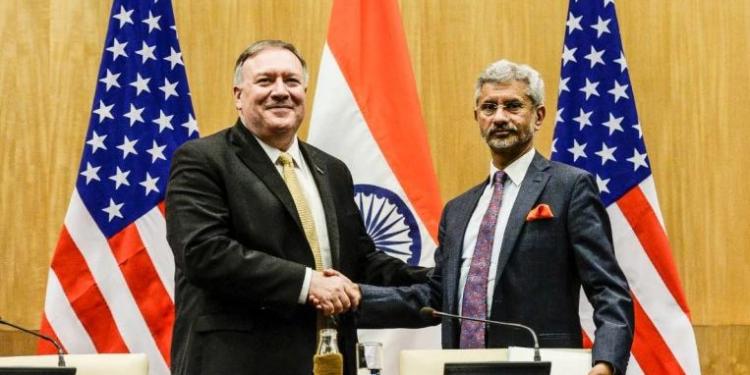US secretary of state Mike Pompeo made his visit to India for the first time after Narendra Modi’s massive electoral victory. The meeting comes amid rising tensions between USA and Iran. In the meeting with PM Modi, External affairs minister S Jaishankar and National Security Advisor Ajit Doval, trade-related concerns, rising tensions in the Persian Gulf and India’s purchase of S-400 Triumph missile system from Russia were all discussed and both sides agreed that their ties were strong enough to accommodate each other’s concerns and differences. In the Joint presser, Pompeo said that India is an important partner of the US and that their bilateral ties were reaching new heights while his Indian counterpart, S Jaishankar reciprocated the same while reasserting India’s strategic autonomy and national interest.
When it came to the contentious issue of India’s Russian S-400 Triumph deal and the CAATSA sanctions, Foreign minister Jaishankar asserted that India would do whatever would be in its national interest. “We have many relationships with many countries. Many of them are of some standing, they have a history. So I think we will do what is in our national interest, and again, part of that strategic partnership is the ability of each country to comprehend and appreciate the national interest of the other”, said the minister.
The Indian side went soft on trade-related disagreements but was evidently stern while resisting the United States pressure on influencing India’s foreign policy. The United States has tacitly threatened India with sanctions even as bilateral relations between the two countries are at their historic best. These sanctions relate to the United States policy of influencing its allies’ relations with countries that the United States recognizes as its adversaries. Under the US law CAATSA, the threat of US sanctions looms on India for its purchase of oil from Iran and its purchase of the S-400 missile system which is a massive $5.43 billion deal. India has been granted waivers for the past many months but the US has been indicating that exemptions may not be renewed. The US is also very keen on expanding its oil and defence and military equipment exports to India. Newly appointed as External Affairs Minister, S Jaishankar, who is a seasoned diplomat and is even termed as one of the world’s best diplomats by experts, had complex challenges to tackle in this meeting.
On energy and India’s oil imports, S Jaishankar said “we have common ground on energy … for us it is important that global energy supplies remain predictable, that they remain affordable.” and that, “I think he (Pompeo) understands that this is today the world’s fifth-largest economy, which imports 85 percent of its energy, a large part of it, from the Gulf”. Pompeo’s response was that “we all know that we need to keep that waterway open …We also know that Iran is the world’s largest state sponsor of terror, and we know the Indian people, how they have suffered from terror around the world.” From the conversation, it appears that the disagreements on Iran will continue.
While Pompeo expressed the United States desire to work closely with India, the Indian side reciprocated the same but with the assertion of the need for trust and confidence between the two parties as said by S Jaishankar. He said that the defence relationship was “encouraging” and “if this is to grow, it will be important to display trust and confidence in each other”.
The two countries have several shared interests which have formed the bedrock of their ties. On terrorism, foreign minister S Jaishankar expressed his appreciation for the “strong support that we have received from the Trump administration” and the United States’ “zero tolerance for cross order terrorism” in India while his American counterpart remarked, “India’s own experience with terrorism is very real; we know that” and assured that “Our teams will continue to work together to improve information sharing, intelligence sharing, and strengthen India’s ability to fight terrorism.”
Prime Minister Narendra Modi will be meeting US President Donald Trump at the two-day G20 summit in Osaka, Japan starting on June 28 and the trilateral meeting, JAI, of the leaders of Japan, US and India shall also take place in Japan. India, in the past few years, has been deeply ingrained in the United States’ security policy in the Indo-Pacific region and while the United States continues to exert is choices on India’s relations with other nations, particularly Iran and India’s old all-weather ally, Russia, India’s resistance continues to stand strong considering what is best her national interest. This has been exhibited in the first high-level meeting, after PM Modi’s return to power, between the two countries this week where Jaishankar has made it clear that India will not take any steps which are detrimental to her interests.
























